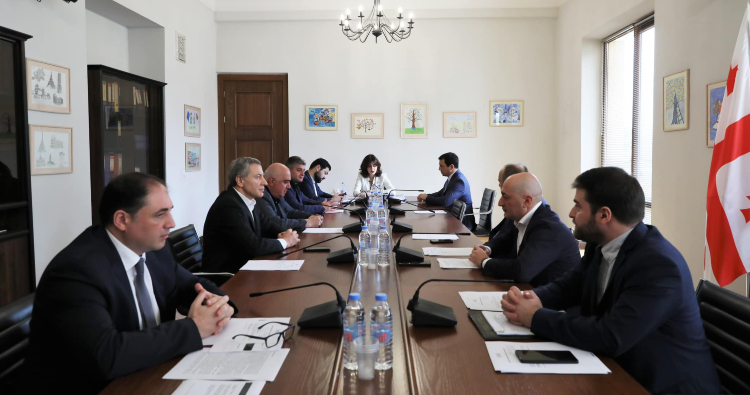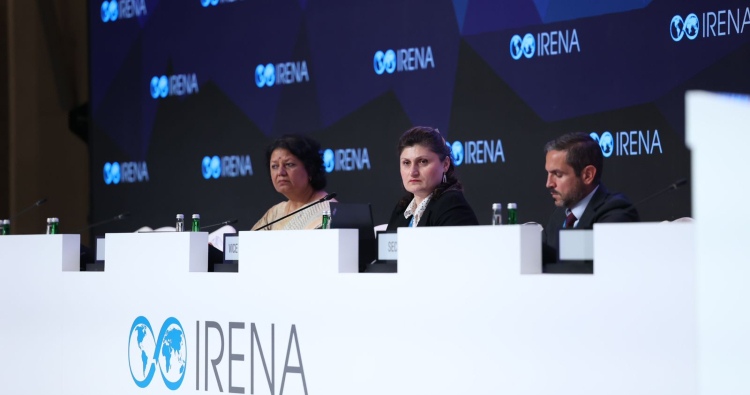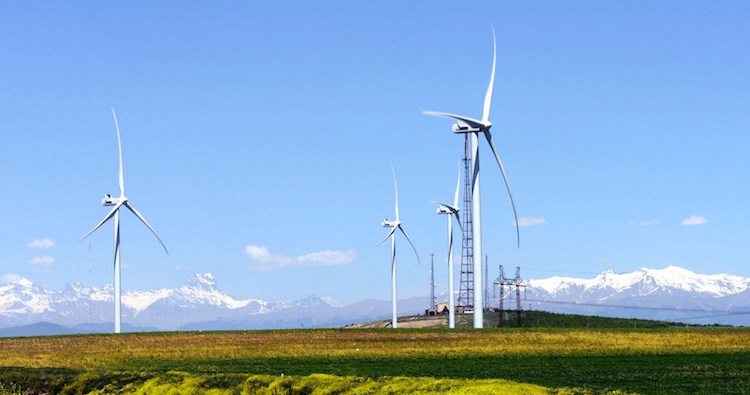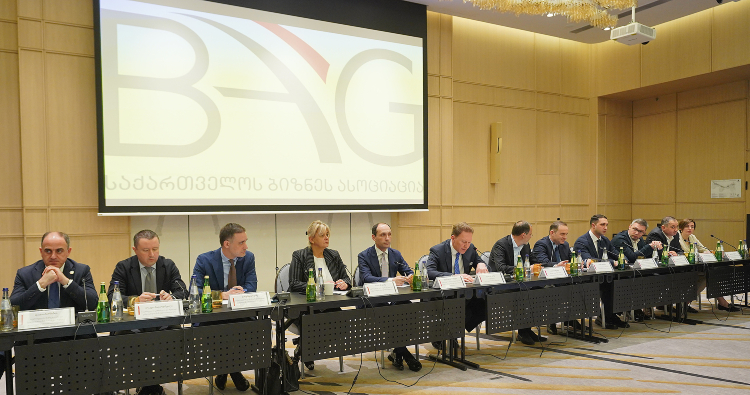Parliament Committee Chair claims Gov’t has fulfilled 80% of EU Association Agreement in energy
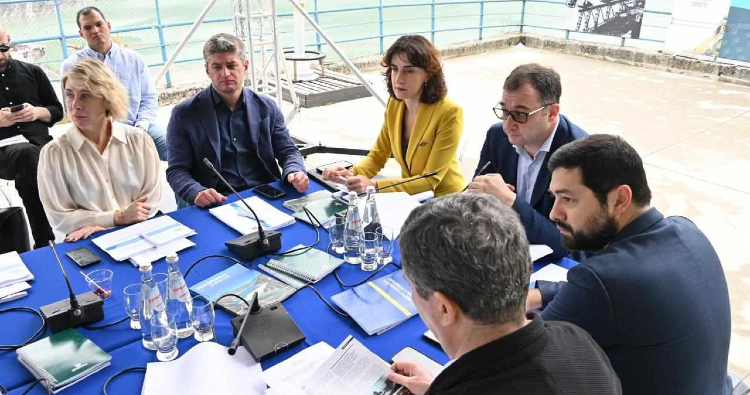
The Committee Head also said the legislative work would be completed “in the coming years” to finalise meeting the remaining energy-related targets of the Agreement. Photo: Economy Ministry
Maka Botchorishvili, the Chair of the European Integration Committee of the Georgian Parliament, on Tuesday said the country’s Government had fulfilled 80 percent of the energy-related clauses in the Association Agreement with the European Union, in comments on the 10th anniversary of the deal.
Botchorishvili made the comment following sessions of the European Integration and Sectoral Economy committees of the legislative body, hosted at the Enguri Dam in the north-west of the country.
The meeting discussed clauses of the agreement that have been met since the 2014 signing of the Agreement and plans of fulfilling the remaining obligations, with Genadi Arveladze, the Georgian Deputy Minister of Economy and Sustainable Development, presenting the report.
The Committee Head also said the legislative work would be completed “in the coming years” to finalise meeting the remaining energy-related targets of the Agreement.
Speaking at the hearing, Arveladze highlighted major energy projects including the Black Sea submarine cable initiative to create a new transmission route to deliver green energy from the South Caucasus to Europe.
He said the project involved connecting the energy systems of Georgia and Romania through an underwater cable in the Black Sea, with Azerbaijan and Hungary also participating.
The Deputy Minister also said the Georgian Government had approved a new support scheme for renewable energy, leading to public-private cooperation and auctions with a total of 1,100 MW capacity between 2023-2024.
Arveladze emphasised the Government’s efforts to enhance energy security by building substations, power transmission lines and power stations over the past decade.
Eight substations, power transmission means including double-circuit lines, as well as 57 hydro and one wind power station with approximately 738 MW of capacity had been constructed and put into operation over the past decade, he told the event.
He also highlighted energy dialogue between Georgia and the European Union throughout 2023, which he said had fostered “deeper cooperation” in the sector.
Arveladze also mentioned opening up of the domestic energy market, unbundling of transmission system operators and the Government’s progress in aligning the country’s energy sector with EU standards.
 Tweet
Tweet  Share
Share
